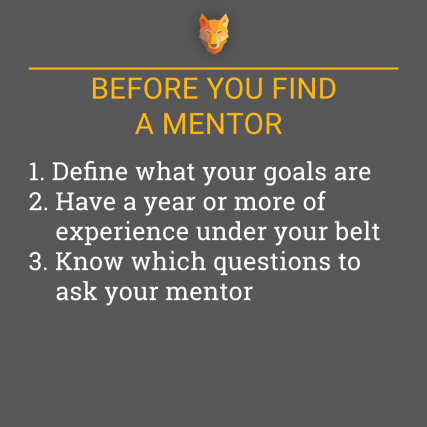You are viewing our site as an Agent, Switch Your View:
Agent | Broker Reset Filters to Default Back to ListHow to Find a Mentor in Real Estate and Grow Your Relationship
July 03 2018
Ground Rules for Real Estate Mentoring

There are many components to success in real estate. From networking to marketing and everything in between, it can feel like you aren't sure which things you should be doing now, later, or at all. This is where a mentor steps in--an experienced, successful agent who can show you the ropes is a great asset to have in your corner, and a highly recommended plan for any agent looking to grow their business.
But before we explain how to obtain a mentor, we'll lay down some ground rules.
Mentor/mentee relationships are mentee driven. You have to find and reach out to your mentor--not the other way around.
Unfortunately, your mentor doesn't have all the time in the world to mentor you (or others). Respecting their time and not calling them at every chance will help keep your relationship strong.
Mentors can't teach you everything you need to know. They are there to answer your questions and provide feedback, and they expect that you will already know the ground rules about real estate selling.
Before you find a mentor, you need to define what your goals are, have a year or more of experience under your belt, and know which questions to ask your mentor. Mentors want to help you learn and grow, but they can only do that if you are prepared to drive the relationship and show initiative. Know where you want to go from where you are right now. If you don't have goals and aspirations, how can a mentor help you improve your professional life? If you're hurting for actionable goals, we have a few ideas: start your own real estate blog, increase your lead generation through video, convert more leads using marketing automation, or update your outdated website.
The Importance of a Mentor
Mentors can give you crucial feedback to help you avoid mistakes, improve your strategy, grow your business, and so much more. You can also learn a lot by watching what your mentor does: what they write about on their blog, which professionals they work with, and how they manage their time. Applying some of the techniques they use to stay on top can help you rise to their level someday.
You're all fired up and you understand the ground rules of mentoring; now it's time to get practical. Up next: learn how and where to meet a mentor.
Meet a Mentor and Start the Relationship
Start by attending local events in your area, real estate-oriented and not. Do some research before you go. Google "location real estate agent/broker/investor," and read through the websites of experienced real estate professionals in your area. When you find someone who you think could be a good mentor match, try to see which events they might be attending and start talking to them there.
If there aren't many opportunities in the real world to meet your mentor, a cold call or email is always possible, too. Just make sure not to start it with "Hi, I'm a new real estate agent looking for someone to mentor me..." because you want to position yourself as someone with experience who wants feedback, not someone who has no experience who wants a real estate teacher. Showing that you know who they are and what they're about is a must. An example of this would be including an aside about their work you've seen online, that you've heard about them from a mutual contact—or if you have met them in passing, remind them about it.
It's a Two Way Street
Once you've connected with a mentor and had a few coffee meetups and phone calls, it's time to double down and assess what you can offer your mentor.
Many agents, brokers, and other real estate professionals are extremely busy and could use someone to help with small tasks like photography or writing website pages. Not all mentors expect this as a part of the mentor/mentee process, but the ones who do will be grateful. Before you offer up your services, make sure to figure out the balance between how much time you have to give and if it's worth it to keep your mentoring relationship afloat. Mentors who expect you to spend too much time or effort helping them are not mentors you want to have.
Stay the Course
There will come a time when you and your mentor are very comfortable with one another, meaning that you might receive difficult feedback that you weren't expecting. While this feedback can seem harsh, it's important to remember this is exactly what a mentor is for. They will know you and your business better than most, and they give you feedback to help you succeed.
If your mentor relationship is really working out, remember to keep it fresh and driven. Keep asking them for feedback and insight, and most of all keep meeting them halfway. A mentorship is a partnership. Each of you give and take and you both become better for it.
To view the original article, visit the WolfNet blog.









